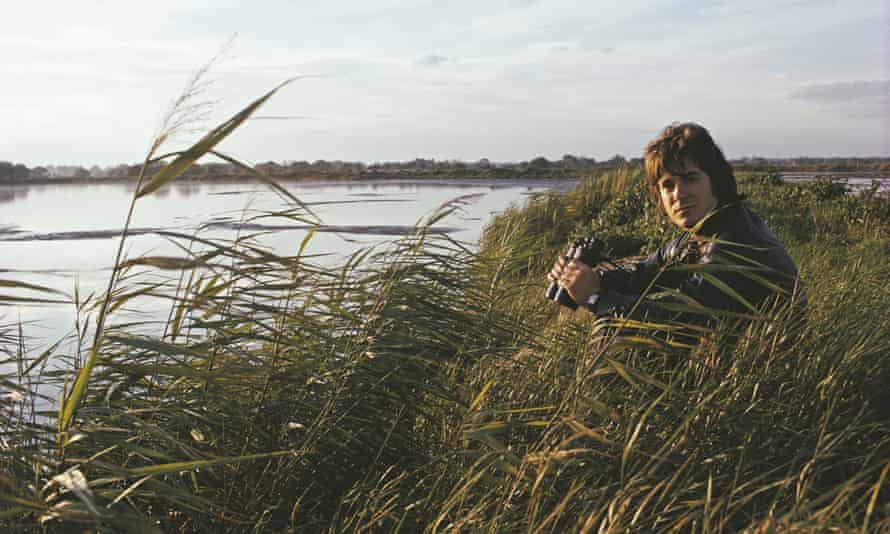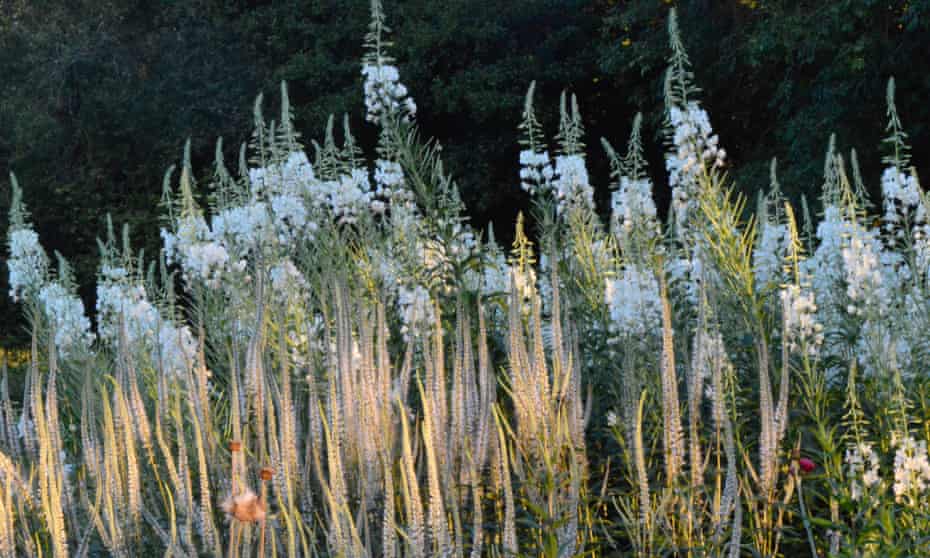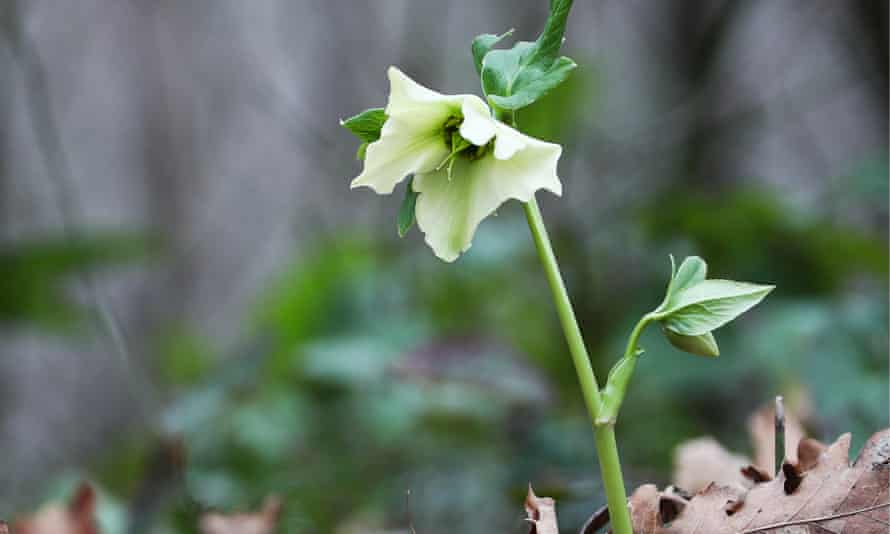After a year of virus-plagued humans observing with new wonder how wildlife boosts our wellbeing, the conclusion of the man who invented the burgeoning “nature cure” genre is unexpected. Nature, declares Richard Mabey, makes us ill. He was first told this by his fellow writer, Kathleen Jamie, and it made Mabey “think very much more deeply about the whole panoply of what ‘nature’ means,” he says. “Bacteria and viruses and man-eating tigers and predatory Asian hornets are also all part of nature. At times we need to defend ourselves from ‘nature’ but also row back from the value judgments we make about certain parts of the natural world, because we need the whole thing kicking together if the biosphere, including us, is to survive.”
Mabey, who has just celebrated his 80th birthday, has been a pioneer in British nature writing and environmental thinking for five decades. He is not a contrarian but has consistently interrogated and challenged prevailing patterns of thinking in more than 30 books (so many it is difficult to conclusively count them). Nature is a “criminally abused word”, he says. And he criticises the simplicity of the assumption that we have been reconnecting with nature in the wake of the pandemic’s lockdowns. “I’m particularly aroused by this term ‘reconnection with nature’, given that we are all every moment every breath of our lives very connected with it. I hate to say any words in support of our great leader but at one point during lockdown Boris Johnson used the phrase: ‘We must be humble in the face of nature.’ He was thereby putting the pandemic on the side of nature. As we hopefully mature in our understandings of our relationship with the world outside, we have to move towards a much more broad-based concept of what nature means. When people say: ‘Yeah! Go out and reconnect with nature! Nature makes you well!’ in fact they are just talking about a cherry-picked selection – trees and birds and flowers.”
While many of us have spent the pandemic worrying hugely, Mabey, who describes himself as “naturally a really quite anxious person” has been mentally untroubled by coronavirus. Instead, locked down at his home with his partner, Polly, on the Norfolk-Suffolk border, he’s been thinking. Now, invigorated by #Mabeymonth on Twitter – an appreciation devised by fellow writers Tim Dee, Mark Cocker and Jamie – Mabey is ready to start the book of big ideas he regrets not writing sooner.

In an era when bookshops are thickly forested with new nature tomes, it is easy to forget that for decades Mabey, in Britain, was a lone voice in an empty field. He grew up, a “hedge kid” roaming the countryside around Berkhamsted, for whom nature was a refuge from a bed-ridden, alcoholic father who ruled the household as if by remote control. Writing has always been how Mabey makes sense of things, and keeps well. When his father died, “I thought that I really wouldn’t care less whether he was alive or not”, but two hours after the funeral Mabey “sat in my room and just wrote pages and pages on blue Basildon Bond paper about what I’d been feeling. I couldn’t have gone through the rest of the day if I hadn’t done that.”
In the early 1960s, Mabey joined the political protests of the day – arrested during street demos, against the Cuban missile crisis – but it was visiting the Norfolk coast where he encountered traditional foraging for food such as samphire that moved him to write Food for Free (1972), which pre-dates Hugh Fearnley-Whittingstall’s advocacy of wild food by three decades. Mabey, who cites Rachel Carson’s Silent Springand Annie Dillard’s Pilgrim at Tinker Creek as his key texts, has been consistently trailblazing. His second book, The Unofficial Countryside (1973), is a memorable celebration of wildlife in rubbish dumps and waste ground that foreshadowed other British writers’ interest in “edgelands” by 40 years. His biography of Gilbert White (1986) and epic cultural history of plants, Flora Britannica (1996), are key texts in the revival of nature writing in Britain. More recently, Mabey’s Nature Cure (2005), detailing his mental breakdown after finishing Flora Britannica and the succour he found by belatedly leaving behind his childhood home in the Chilterns for the bleaker south Norfolk countryside, heralded that genre of nature misery memoir.
Eighteen months ago, after a period of poor physical health, Mabey published what sounded like his last ever book, with a suitably elegiac title, Turning the Boat for Home. An expanded collection of 20 years of writing, he calls it “an intellectual autobiography” but admits it sprang from failure. “I badly wanted to write what I thought would be a last book. Some sort of summing up of a life. But I very quickly confirmed that I don’t have the right sort of mind or memory to do what people regard as autobiographies.”
The collection is a reminder of his essayistic talents, from a gorgeous ferret into his bookshelves, which possess “the rampant wildness of an ecosystem, with an agenda of its own”, to an examination of how we might better relate to barn owls, birdsong and whirligig beetles. The most respectful terms of engagement, he argues, are not “anthropomorphism or manufactured empathy” but “a sense of neighbourliness”. This is not friendship but “based on sharing a place, on the common experience of home and habitat and season”. “It might provide a bridge across the great conceptual divide between us and other species.”

Neighbourliness is “just scratching the surface” Mabey says. He is delighted by his friend Robert Macfarlane’s essay exploring “the new animism”. “I think this is the new intellectual frontier,” he says. “If there is one deep regret of my life, it is that I’ve never done a book of a big idea. I’ve always been frightened of them, partly because a bit of me doesn’t believe in big ideas because they tend to lead to dogmatism and ideology, and nature works in small ideas, little adjustments. But I think there is a germ of a big idea about how we frame our relationship with these other beings on our planet.”
He wants to probe these relationships more closely in a book rooted in the plants of his “home acres” around the Waveney valley. “OK, you’re face to face with a violet helleborine in a wood you know very well. What is going on between you and it? How are you framing its existence in relation to your own? Do you have any thoughts about what the violet helleborine may be perceiving about your presence – your scent molecules, your carbon dioxide emissions? There’s a transaction going on, which is different from the transactions we have with other conscious beings but which is there nonetheless.”
Another big issue he wants to explore is the philosophical basis of rewilding. “Can we return to a pre-human landscape, the one that was in Britain before neolithic farming began? Because that’s being used as a kind of baseline for the condition and the species that we ought to have in this island. Or are we, in George Peterken’s great phrase, looking for a ‘future nature’? By rewilding, are we going towards simply a deliciously unknown state where we don’t know what will happen and we take the brakes off and allow natural processes to take their course? In which case, we probably end up with something quite different from the past nature, the neolithic pre-farming condition.”
Mabey has been struggling to devise a structure for these explorations but just a week ago was struck that he could write them as a series of letters, like Gilbert White’s seminal The Natural History of Selborne. “The epistolary form has not been particularly well worked in nonfiction,” he says. “It gives you a way of bringing lots of subjects both theoretically and domestically together in a really conversational tone, rather than just preaching, which any philosophical discussion can lead you into.”

For all his scepticism about the idea that “nature makes us well”, to my surprise Mabey does not dismiss the view that we are currently enjoying a changed relationship with other species. “I’m absolutely sure that it’s a real phenomenon. It’s quite plain that people did have an unusual response to the natural world during lockdown and are still having that,” he says.
He identifies two new aspects to this. One is the feeling that nature is doing “marvellously well without us” – trees blooming, birds singing – and isn’t that wonderful. In the past, says Mabey, signs of nature prospering during human suffering were resented. “I’m thinking of TS Eliot’s ‘April is the cruellest month’ after the first world war. He was suggesting that the spectacle of lilacs blooming was offensive to people who wanted to wallow in the misery of what was happening.” When Mabey researched Weeds (2010) – another book a decade ahead of its time – he found that the spectacle of rosebay willowherb blooming in the ruins of bomb blasted British cities during the second world war was again greeted as if “nature” was adding “insult to injury”.
“The second thing that’s new is the minuteness of the attention brought to bear on other species,” says Mabey. “I’ve found this myself. Wandering around the garden, I’m seeing things that I’m ashamed to say I’ve not focused on before – the particular mechanisms of a leaf bud opening up, or dozens of Harlequin ladybirds scurrying on a lichen-covered ash tree. They looked like herbivores grazing on a lichen forest. This seems to be tied to the first thing. When you admit that nature in the very broadest sense seems to be doing OK – and isn’t that hopeful for the whole planet – it draws you into a more wondrous attention to what it is doing.”